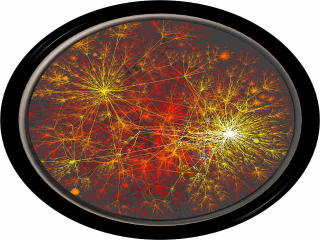The Julius Babao Affair and the Missing Terrorist
Philippine Government Captured the Wrong One-Armed Bandit Terrorist?
ABSCBN Strikes A Blow for Press Freedom?
Will Bloggers Get Clobbered in the Philippines?
Or go to the latest Philippine Commentary
John Nery at the Newsstand points to this article in PDI Sunday in which
"President Macapagal-Arroyo has named ABS-CBN broadcaster Julius Babao as the one who provided bail for a leader of the group of Islamic converts allegedly allied with the regional terrorist network Jemaah Islamiyah."ABS-CBN, the Philippines largest tv and radio network, reacted swiftly to the published accusation, posting this strongly worded article on its website at 5:57 pm Sunday,
ABS-CBN on Sunday denied a newspaper report naming TV Patrol World newscaster Julius Babao as the one who allegedly provided bail for terror suspect Dawud Santos.
Santos was tagged as the leader of Rajah Solaiman Movement (RSM), which has alleged ties to terror group Jema'ah Islamiyah.
ABS-CBN said its "code of ethics prohibits it from intervening in legal processes."
The network said after Babao's scoop was aired, TV Patrol World reported an exclusive interview with the military intelligence agent who investigated Dawud and lamented the lack of an anti-terrorism law in the country, which would have made the charge of terrorism a non-bailable offense.
"ABS-CBN condemns in the strongest terms this insidious move on the part of the government and its agents to point the finger at media to cover up for its own indecision and inaction," the network said in a statement.
What is more, as the Newsstand post points out, ABS-CBN's early morning show anchor, broadcaster Julius Babao, claims it was Environment Secretary Michael Defensor's asset, Jonathan Tiongco who posted bail for the suspected leader of the "Rajah Solaiman Movement" when he was arrested last March in connection with the Valentine's Day terrorist bomb attack in Manila. That man is the same person arrested the other day, and is claimed to have been with the nice gentleman whose face you see nearby...
 Meet DULMATIN aka AMAR USMAN who has a $10 million price tag on his capture--DEAD or ALIVE--an amount right up there with the rewards on offer for Osama bin Laden and Muhammad al-Zarqawi (both at $25 million dollars). Wanted in connection with the Second Bali Bombing a month ago, Dulmatin is described at the Rewards for Justice Center of the United States as:
Meet DULMATIN aka AMAR USMAN who has a $10 million price tag on his capture--DEAD or ALIVE--an amount right up there with the rewards on offer for Osama bin Laden and Muhammad al-Zarqawi (both at $25 million dollars). Wanted in connection with the Second Bali Bombing a month ago, Dulmatin is described at the Rewards for Justice Center of the United States as: an electronics specialist with training in al-Qa'ida camps in Afghanistan, is a senior figure in the Jemaah Islamiyah terrorist organization.He is believed to have been one of the masterminds behind the 2002 bombings in Bali, Indonesia, which killed 202 people, including seven U.S. citizens. Dulmatin is a mid to late 30's, Javanese Arabic man, 172 cm tall, weighing 70 kgs, with a brown complexion.The BBC calls him the "genius of the Jemaah Islamiyah".
So who let the dogs out? Woof! Woof! Well, as the Newsstand and PDI articles point out, the lawyer who handled Santos' case in March, the well known Atty. Homobono Adaza, confirmed that the bail money was paid by Sec. Defensor's man, Jonathan Tiongco, who has played also no small role in the coverup activities in Gloriagate. John Nery says,
Babao has not only denied ever paying for Santos' bail; he pinpoints exactly who paid for it: Jonathan Tiongco, the controversial political operator whom Sec. Mike Defensor once used as an audio expert to debunk the Hello Garci tapes. Homobono "Asterisk" Adaza, who represented Santos upon Tiongco's request, confirmed in two interviews with the Inquirer that it was in fact Tiongco who arranged for the bail.Dulmatin has been much in the news lately because there has been a furious manhunt for him and other Jemaah Islamiyah malevolents in Mindanao. Philippine troops assisted by Australian and American forces have so far only captured the younger brother--Duwad Santos--of the founder of the Rajah Solaiman MOvement--Ahmed Santos--who is still at large. The military has made as much as possible from the capture of Duwad, his wife and young son as "key militants" who were with Dulmatin recently.
Now, is John Nery right about this being another "trial balloon" to test the perimeters of press freedom? Of course, we don't really know what the Palace is thinking as the original PDI article said Pres. Arroyo accused Babao to Ramon Tulfo--who is a main fixture in the demagagosphere to be sure, and capable of anything when it comes to "information". But I understand the fear. Many parts of the main and blog stream media are openly sympathetic to various left wing causes and oppose American and Philippine government policies in the War on Terror.
HAVE A HAPPY HALLOWEEN,
 A Girl-on-the-Right has invited you to a Halloween Party...Go to the Cotillon for a wicked time...
A Girl-on-the-Right has invited you to a Halloween Party...Go to the Cotillon for a wicked time......YOU CAN EMAIL THIS POST TO ALL YOUR FRIENDS BY CLICKING THE LIL ENVELOPE BELOW...What better Halloween Trick or Treat than a chance to earn a TEN MILLION DOLLAR REWARD?





